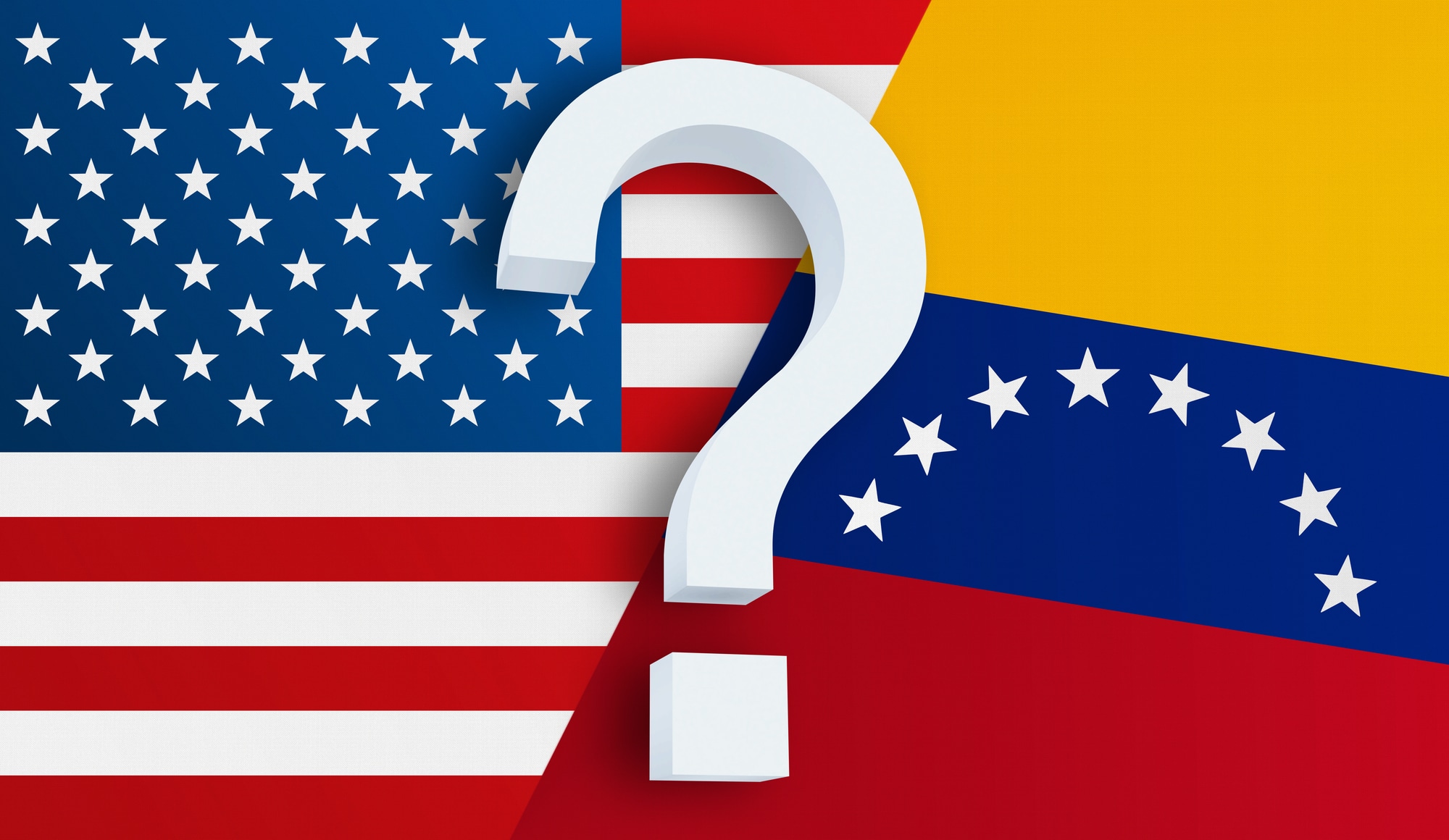In the waters of the Caribbean, a surprisingly large U.S. fleet sits with Venezuela in its sights. It includes over 10,000 troops, Aegis guided-missile destroyers, a nuclear-powered fast attack submarine, F-35B jet fighters, MQ-9 Reaper drones, P-8 Poseidon spy planes, assault ships, and a secretive special-operations ship.
The fleet is built for war on Venezuela or its drug cartels, but it is engineered to put enough pressure on Venezuela’s President Nicolás Maduro to push him from power. The justification for the war is stopping the flow of drugs into the United States by Venezuelan drug cartels; the justification for the coup is that Maduro is the head of those cartels.
But U.S. officials—often those in the best place to know—have disagreed with all three aspects of the military action: the significance of Venezuela’s drug cartels in the flow of drugs, and especially fentanyl, into United States; the role of Maduro in those cartels; and the use of the military to fight them. For their disagreement, many of those officials have left or been forced from their jobs.
U.S. President Donald Trump has insisted that military force is necessary to stop “narco-terrorists” who are smuggling a “deadly weapon poisoning Americans.” He has claimed that “every boat” the U.S. military strikes off the coast of Venezuela is “stacked up with bags of white powder that’s mostly fentanyl” and “kills 25,000 on average—some people say more.”
But current and former U.S. officials disagree. While most of the boats the U.S. military has sunk have been in the passageway between Venezuela and Trinidad and Tobago, U.S. officials say that that passage is neither used to transport fentanyl nor is it used to transport drugs to the United States. 80% of the drugs that flow through that passage is marijuana, and most of the rest is cocaine. And those drugs are headed, not to the United States, but to West Africa and Europe. Most of the fentanyl that finds its way into the U.S. comes from Mexico.
The military strikes on Venezuelan boats cannot be justified by the war on drugs and “are unlikely…to cut overdose deaths in the United States,” according to officials. “When I saw [an internal document on the strikes],” a senior U.S. national security official said, “I immediately thought, ‘This isn’t about terrorists. This is about Venezuela and regime change.'”
According to the U.S. Drug Enforcement Administration, 90% of the cocaine that transits into the United States enters through Mexico, not Venezuela. And Venezuela is not a source of fentanyl. The dissenting American officials are in agreement with international bodies. The 2025 UNODC World Drug Report assesses that Venezuela “has consolidated its status as a territory free from the cultivation of coca leaves, cannabis and similar crops.” The report says that “[o]nly 5% of Colombian drugs transit through Venezuela.” The European Union’s European Drug Report 2025 corroborates the United Nations report: it “does not mention Venezuela even once as a corridor for the international drug trade.”
U.S. intelligence also disagrees on the Trump administration’s claim that Maduro is at the head of the Venezuelan drug cartels. The Trump administration has insisted that “Maduro is the leader of the designated narco-terrorist organization Cartel de Los Soles.”
Again, though, U.S. officials disagree. A “sense of the community” memorandum dated April 7, 2025 that puts together the findings of the eighteen agencies in the U.S. intelligence community released by the Office of the Director of National Intelligence directly contradicts the Trump administration’s claim that Maduro is the leader of Tren de Aragua (TDA) drug cartel.
The memorandum clearly states that “the Maduro regime probably does not have a policy of cooperating with TDA and is not directing TDA movement to and operations in the United States.” It states that the intelligence community “has not observed the regime directing TDA.”
Making the American case against the Maduro government even less credible, the memorandum finds that “Venezuelan intelligence, military, and police services view TDA as a security threat and operate against it in ways that make it highly unlikely the two sides would cooperate in a strategic or consistent way.” The Venezuelan National Guard has arrested TDA members and “Venezuelan security forces have periodically engaged in armed confrontations with TDA.”
The contradiction was seen as a problem. Days after the memorandum’s release, Joe Kent, then acting chief of staff for Tulsi Gabbard, the director of national intelligence, told a senior intelligence analyst to do a “rethink” of the analysis and offer a new assessment. “We need to do some rewriting so this document is not used against the DNI [Director of National Intelligence] or POTUS [President of the United States],” Kent told intelligence officers.
The rewritten memo still contradicted the Trump administration’s claims about Maduro. One week later, Michael Collins, the acting chair of the National Intelligence Council, and Maria Langan-Riekhof, his deputy, were fired by Gabbard. Gabbard claims the firings were part of a campaign to stop leaks by “deep-state criminals” who are politicizing the intelligence community.
U.S. officials have objected not just to the White House’s claims about Venezuela as a narco-state and about Maduro’s role as head of the cartels, but also to the White House’s militarized answer to the problem. And the objection has come from the highest level of the U.S. military.
On October 16, Admiral Alvin Holsey, head of the U.S. Southern Command, the group that oversees all operations in Central and South America, including the current and any future military actions taken against Venezuela, announced that he was stepping down. The New York Times has reported that there were “real policy tensions concerning Venezuela” between the admiral and Pete Hegseth, the secretary of War. Current and former U.S. officials say that Holsey “had raised concerns about the mission and the attacks on the alleged drug boats.”
But there are also reports that there were questions about whether Holsey would be fired in the days before he announced his resignation. “Hegseth did not believe Holsey was moving quickly or aggressively enough to combat drug traffickers in the Caribbean.” The Washington Post reports that “Hegseth had grown disenchanted with Holsey and wanted him to step aside.” The disenchantment, according to “people familiar with the matter,” started “around the time that the Trump administration began ordering deadly strikes on alleged drug boats off the coast of Venezuela.”
At every level, Venezuela as a significant source of drug deaths in America, Maduro’s role as leader of Venezuela’s drug cartels, and the United State’s militarized solution to the problem, U.S. officials have disagreed with the Trump administration. Some of those officials have paid for doing their jobs with their jobs.

































